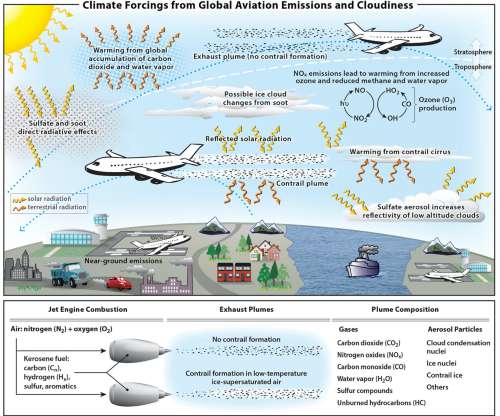Study: 2/3 of aviation climate impact due to emissions other than CO2
Green Car Congress
SEPTEMBER 6, 2020
It makes an important contribution to the scientific understanding we have of the role of aviation for climate change—an understanding decision-makers and politicians may need on the way to achieving the goals of the Paris Agreement. This new study is based on a thorough review of a decade of research on aviation emissions.


























Let's personalize your content